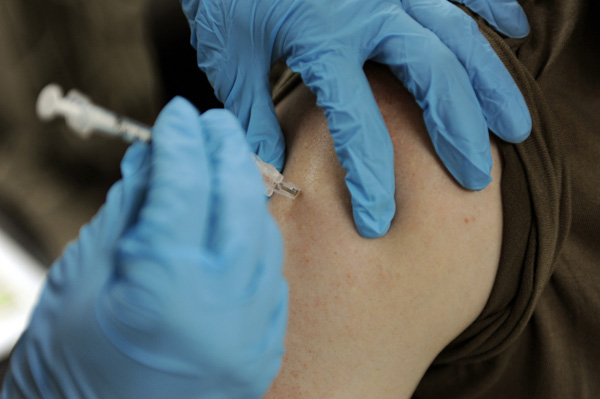To increase the number of kids getting vaccinated against Human Papilloma Virus (HPV), the Centers For Disease Control and Prevention (CDC) is encouraging doctors to emphasize the shot as a form of cancer prevention, rather than STD protection. Drugmakers and public health workers hope that this tactic could convince skeptical parents to get their children vaccinated.
The HPV vaccine is targeted towards kids between the ages of 11 and 12, as way to prevent them from contracting and spreading the virus – which has been linked to cases of cervical cancer – before they become sexually active. But some parents are hesitant to get their kids vaccinated, saying their children are too young to be thinking about STD protection.
Both companies which manufacture approved versions of the HPV vaccine – Merck & Co. and GlaxoSmithKline – have seen slow uptake of the vaccines since their launch on the market. Shying away from the STD protection aspects of the vaccine, Merck recently launched a new commercial for their HPV vaccine, Gardasil, which highlights the cancer prevention abilities of the shot.
Safety concerns surrounding the HPV vaccine and the anti-vaccines movement have also impacted the number of kids getting the shot. While the U.S. Department of Health and Human Services has a set a target of vaccinating 80 percent of boys and girls by 2020, only 40 percent of girls and 21 percent of boys received the HPV shot last year.
While the HPV vaccine currently requires a course of three shots over a six month period, public health officials are considering reducing that number to two. If approved by the CDC, the two-dose schedule could make it easier for kids to get the HPV vaccine.
Approximately 14 million people in the US become infected with HPV each year, and up to 25 percent of the entire population is already infected, according to the CDC. The disease is asymptomatic in most people, but 30,700 cases of cancer – including cervical, penile and throat – are attributed to HPV infection, each year.












Join or login to leave a comment
JOIN LOGIN